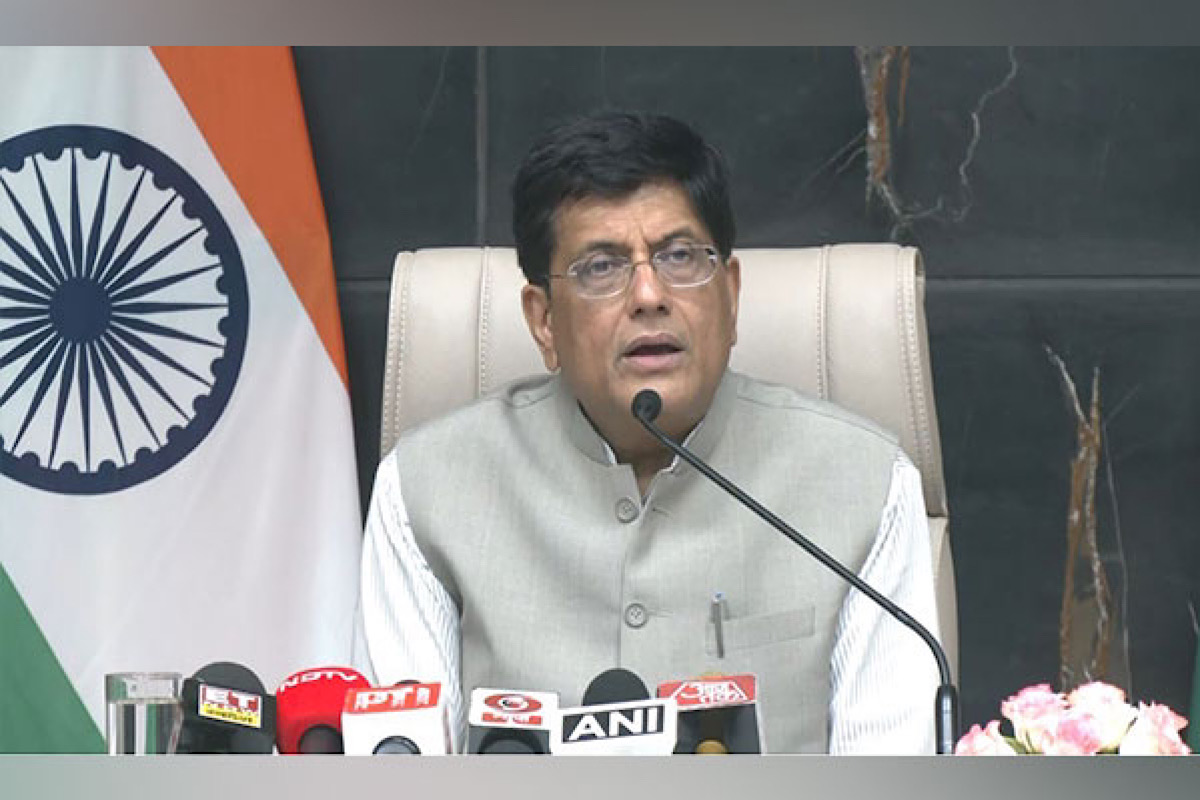India and Canada have reaffirmed their commitment to the rules-based, transparent, non-discriminatory, open, and inclusive multilateral trading system embodied by the World Trade Organisation and concurred to work together to further strengthen it.
The two nations held their sixth Ministerial Dialogue on Trade & Investment (MDTI) in Ottawa on Monday, co-chaired by Commerce Minister Piyush Goyal and Canada’s Minister of International Trade Mary Ng.
Advertisement
The two ministers emphasised the solid foundation of the trade and economic relationship between India and Canada and recognised the significant opportunity to deepen bilateral ties and economic partnership.
They touched on the important discussions taking place at the various meetings of the G-20 being held in India this year under the Indian presidency. In this context, the ministers Ng noted India’s role as a global economy of the future and congratulated the Government of India and the Indian business organisations on the successes enjoyed so far at the G-20 events in India.
She expressed her support for India as G20 Chair, and the priorities pursued by India in the G20 Trade and Investment Working Group. She indicated that she was looking forward to participating in the upcoming G-20 Trade and Investment Ministerial meeting in India scheduled to take place in August 2023.
The two ministers noted the resilience of bilateral trade in 2022 following the challenges of the Covid-19 pandemic and the disruptions caused by the war in Ukraine. Canada-India bilateral trade in goods reached nearly C$12 billion in 2022, a substantial 57 per cent increase over the previous year. They also underlined the contribution of the services sector in furthering the bilateral relationship and noted the significant potential for increasing bilateral services trade which stood at C$8.9 billion in 2022. The two ministers recognised the significant growth of two-way investments and their contribution to deepening economic and trade ties, appreciative of the improvements made by both countries to facilitate business.
The ministers emphasised the key institutional role that the MDTI can play to promote bilateral trade and investment ties and to strengthen economic cooperation between the two countries.
Recognising the need for a comprehensive trade agreement to create vast new opportunities for boosting trade and investment flows between India and Canada, in 2022 the ministers formally re-launched the India-Canada Comprehensive Economic Partnership Agreement (CEPA) negotiations. In pursuit of that goal, negotiations towards an Early Progress Trade Agreement (EPTA), as a transitional step towards the CEPA, have been underway and several rounds of discussions have already taken place. The EPTA would cover, among others, high-level commitments in goods, services, investment, rules of origin, sanitary and phytosanitary measures, technical barriers to trade, and dispute settlement, and may also cover other areas where mutual agreement is reached.
The two sides also agreed to explore enhanced cooperation through measures such as coordinated investment promotion, information exchange and mutual support between the two parties in the near future. This cooperation between India and Canada will be finalized by way of a Memorandum of Understanding (MoU) preferably in Fall 2023.
The ministers noted that global supply chains remain under the threat of disruption from the fallout of the COVID-19 pandemic, as well as the effects of the ongoing war in Ukraine. In this context, they discussed the continued importance of working together to promote international rules-based order and supply chain resiliency in critical sectors. They emphasised enhancing cooperation in sectors such as clean technologies for infrastructure development, critical minerals, electric vehicles and batteries, renewable energy/hydrogen, and AI.
Recognising the importance of critical minerals for the future economy and green economy, the ministers agreed on the importance of government-to-government coordination to promote critical mineral supply chain resiliency. They also agreed to explore options for business-to-business engagement on critical minerals between the two countries, and have committed to an annual dialogue between the appropriate points of contact at the official level on the margins of the Prospectors and Developers Association Conference in Toronto to discuss issues of mutual interest.
The ministers noted that India and Canada have agreed to an expanded air services agreement in 2022 which enhances people-to-people ties through enhanced commercial flights by carriers of both countries.











